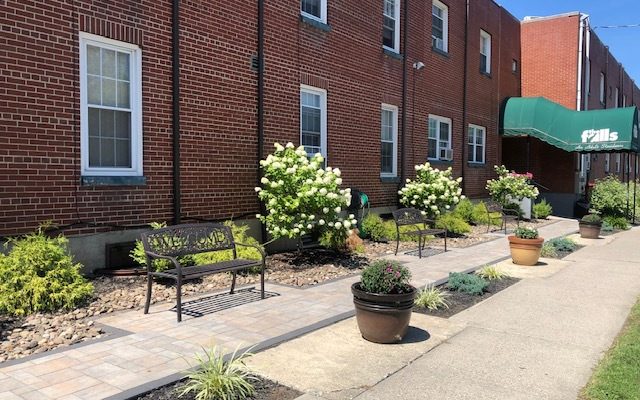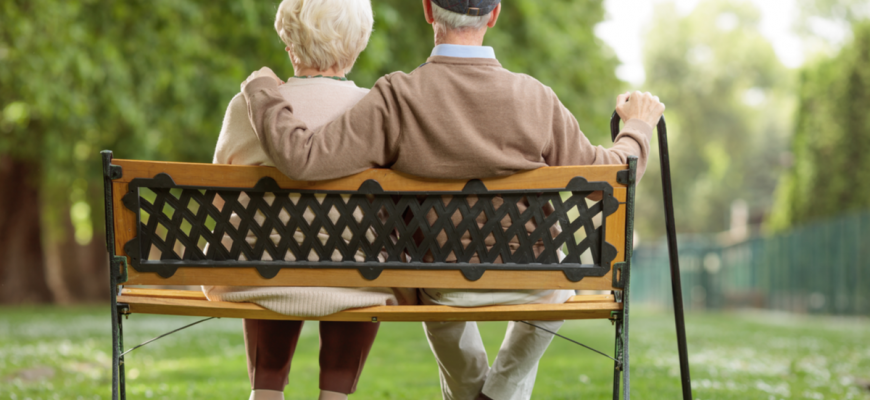Category Archives: Senior Health

Depression In Aging Parents: Warning Signs To Watch For
Senior living, depression in seniors The National Alliance on Mental Illness estimates that more than 6.5 million seniors had depression in 2009. Even though the data is years old, many people still do not consider severe depression to be a concern for elderly parents. What’s worse is that depression in seniors sometimes goes undetected. Many senior living experts opine that a senior who is upset could come off as grumpy. One could consider appetite loss a side effect of becoming older. Seniors may be more likely to worry about death because they are nearing the conclusion of their life. Being sad about becoming older is normal given that we all want to be younger. The physical symptoms of aging or certain behavioral features can indeed be signs of depression. As a result, depression is never properly diagnosed and is instead attributed to aging. This is regrettable because senior depression is common, remains undiagnosed and untreated, and can have catastrophic repercussions. Knowing the warning signals is crucial if your parent begins to exhibit symptoms of depression, which is not a typical outcome of aging. Causes Of Depression In Seniors Seniors do not develop clinical depression as a result of aging; although your parents may be sad that the years have flown by. Again, almost every senior can endure bodily changes and mental fluctuations. However, you and any caregivers should be concerned if these symptoms persist for more than a few weeks. Why are older people more prone to depression? According to […]
Read More
The Importance Of Wound Care In Senior Care Facilities
Residents of long-term care facilities are mainly elderly, weak people who are at risk for developing pressure ulcers due to immobility, the presence of comorbid conditions, and nutritional issues. Pressure sores affected 11% of nursing home residents in 2004. Effective wound care in long-term senior care facilities is crucial to promoting wound healing given the high prevalence of chronic wounds in senior patients. The following factors make a thorough wound care program in long-term care facilities crucial: Seniors Are More Prone To Chronic Wounds As of 2015, there were about 1.3 million Americans living in long-term facilities. [2] The number of people residing in long-term care institutions is only anticipated to rise with the aging population. Age-related changes make older people more susceptible to developing chronic wounds, highlighting the importance of having an efficient wound care program in senior nursing homes and long-term care institutions. In the senior population, wound healing can take longer for a variety of reasons. Multiple comorbidities and risk factors that increase wound chronicity are more common in older people. Diabetes mellitus, cardiovascular diseases, inadequate nutrition, decreased mobility, and declining cognitive function are a few of them. Recently, the term “skin failure” has been used in relation to wound treatment. It describes the skin’s inability to carry out its typical barrier function, which makes it vulnerable to bacterial invasion. Seniors are more prone to skin failure, which can lead to the formation of pressure ulcers. Along with pressure ulcers, venous ulcers, arterial ulcers, and neuropathic ulcers […]
Read More
The Importance Of Getting A Dementia Diagnosis
It is possible that you’ve had memory issues or other symptoms for a while. Your issues likely emerged over a long period of time, making them more difficult to identify. It may seem like your symptoms aren’t severe enough; yet if you’ve only lately been aware of changes. However, it can be crucial to receive a dementia diagnosis early on. Dementia care experts in our senior care facility share the importance of getting a dementia diagnosis. Benefits Of Dementia Diagnosis Being diagnosed with dementia at an early stage allows you to make adjustments and get the things you require, such as: Access To Assistance: The diseases that cause dementia are still incurable. However, there are many resources available to support you in living as well as you can. You can learn what kind of dementia you have after the diagnosis process. Additionally, it can assist you in accessing therapies and support networks as well as future planning (such as establishing a power of attorney). Moreover, this can imply that you have access to medications that can help you control your symptoms. Information That Will Make Your Situation More Understandable To Others: Your mood and behavior can alter as a result of dementia. A diagnosis might help people understand why you have been acting differently, feeling down, or getting annoyed easily. They might be able to help you more effectively. The Provision Of Benefits And Protections: If you have been diagnosed with dementia, you are legally protected against discrimination (unfair treatment) […]
Read More
Understanding Home Care Services
Seniors may require home care services at some time in their lives. In fact, the majority of seniors will tell that they would want to remain at home for as long as possible. They can accomplish this through the use of a home care provider, either with the help of a close friend or a compassionate expert. Finding home care can include letting a stranger into your house, which can be a scary thought. The hesitation you experience will be replaced with gratitude because the advantages they offer far surpass any drawbacks. What Is Home Care? Working with a stranger is frequently a requirement of home care services, but don’t worry—home care experts have the best training in the medical field and are licensed. There might also be a nurse on hand, depending on the kind of home care you get. Family members can also offer home care, but if they lack the necessary training, their capabilities may be limited. A home care professional may assist you with running errands, cooking meals, reminding you to take your medicines, and even being a companion. Some healthcare professionals can assist you in taking care of wounds and severe injuries while also offering palliative care. Different Types Of Home Care Services There are three primary categories of home care services. These are: Personal Care And Companionship Usually, a nurse is not needed to help with this kind of home care. These in-home carers will typically help you with routine duties like meal preparation, […]
Read More
Can Seniors Stop Paying Credit Cards And Debts?
A study by The Senior Citizens League found that seniors owe money on their credit cards in 43% of older homes. So can they stop paying bills? Find out how to protect your elderly parents from debt, no matter if they live alone or in an assisted living facility, and how to help them manage their credit card debt. Why Old Debts Shouldn’t Worry Seniors? As a senior, you shouldn’t worry about credit card debt. Most older people get their income from Social Security, retirement benefits, or other funds that cannot be taken away. Debt collectors cannot seize these funds. Just because it’s judgment free doesn’t mean debt collectors will automatically forgive your debts. Often, family members would take advantage of elderly people by using their credit cards to pay off their family member’s debt. It is important for older people to discuss their debts with their families before getting a cosigner or making other similar plans. After all, the senior will have to pay the bill. Ways To Manage Debt: How Can Older People Get Out Of It? Here are some ways for older people to pay down their credit card bills: Balance Transfer Credit Card: With this card, you can consolidate all of your debt into one account and make one monthly payment. Payment Of Debt: Outside assistance is often helpful. A debt broker can talk to creditors about a payment amount that everyone agrees on. The senior might then pay the bill. Loan Terms: You don’t have […]
Read More
Living In Assisted Living Facility: Methods For Increasing Appetite In The Elderly
Assisted Living Facility, Methods for Increasing Appetite It is crucial to keep trying to get the elderly residing at assisted living facility to eat even if they don’t want to. Elderly folks can boost their appetite in several ways. In this article, we’ll examine the causes of elderly people losing their appetites, natural appetite stimulants, and ways of doing so recommended by geriatric experts. Causes Of Appetite Loss In The Elderly Gum illness Thyroid conditions Throat and mouth infections Parkinson’s and Alzheimer’ disease Cancer Issues with the salivary glands Medication adverse symptoms, like a metallic aftertaste or dry mouth Inadequate exercise Dehydration Lack of a mealtime schedule on a daily basis Taste loss brought on by aging Issues with swallowing, chewing, or independently eating Sensitivity to certain food scents that can make you feel sick General sense of being powerless over one’s life Depression and loneliness Overall negative emotions throughout mealtimes We shall discuss how to boost the appetite in the elderly in the next two sections. Foods For Older People Who Don’t Like To Eat Finding foods to satisfy an elderly person’s appetite can be a straightforward treatment for loss of appetite. Several foods are: Chicken nuggets, fish sticks, steaming or raw veggies, and meatballs are examples of finger foods. String cheese or cheese sticks Full-fat or calcium-rich yogurt Lean proteins such as lentils, beans, and peas Sliced thinly or ground meat Whole milk or milk with chocolate Chopped fruit Crackers with cheese or peanut butter Healthy smoothies or […]
Read More
Understanding ADL And IADL For Seniors: A Key To Promote Their Well-Being
As your loved ones age, they may encounter a variety of physical and cognitive changes that can impact their ability to carry out everyday tasks independently. Activities of Daily Living (ADL) and Instrumental Activities of Daily Living (IADL) are two categories of everyday activities that are critical for seniors’ health and well-being. What Are ADL And IADL? ADL is a term that refers to basic activities that individuals carry out every day. These activities are critical for maintaining hygiene, health, and independence. In contrast, IADL refers to activities that are necessary for more complex daily living tasks, such as grocery shopping, managing finances, using transportation, and doing housework. ADL Checklist For Seniors You can use this ADL checklist for seniors to determine if your loved ones need assistance in any of these areas. A few examples of tasks to include are: Bathing: Can your loved one bathe or shower independently, or do they need assistance? Dressing: Can they dress themselves, or do they need help putting on clothes or shoes? Grooming: Can they brush their teeth, comb their hair, and take care of their personal hygiene independently? Toileting: Can they use the toilet, or do they need assistance with incontinence or toileting aids? Eating: Can they prepare their own meals, or do they need assistance with feeding or special utensils? Transferring: Can they move from one place to another, or do they need assistance with a wheelchair, walker, or other mobility aids? IADL Checklist For Seniors Managing Finances: Can they […]
Read More
Understanding Healthcare Benefits For Veterans In Assisted Living Homes
As a veteran, you may be eligible for healthcare coverage through either the Department of Veterans Affairs (VA) or TRICARE, depending on how you are separated from the military. This guide provides you with complete information on VA benefits, TRICARE benefits, Medicare eligibility, and coverage. VA Benefits When You Become Medicare-Eligible It is not mandatory to enroll in Medicare at age 65 if you’re a veteran with VA benefits. However, if you choose not to sign up for Medicare, you won’t have coverage for services received in facilities outside the VA health system. Additionally, you might have to wait until the subsequent General Enrollment Period to enroll in Medicare if you decide not to do so during your Initial Enrollment Period and do not have employer-sponsored coverage. Moreover, enrolling after the deadline may result in financial penalties. If you are eligible for Medicare at the age of 65 and have VA health benefits, you can enroll in both plans at the same time. In fact, the VA strongly encourages veterans who do not have employer- sponsored insurance to enroll in Medicare Parts A and B as soon as they are eligible. If you need or want to go to a non-VA hospital or doctor, you’re covered under Medicare. Keeping your VA benefits also means you can get coverage for services and items that Medicare does not cover. However, VA benefits and Medicare are two separate systems that are not linked in any way. TRICARE When You Become Medicare-Eligible Once you […]
Read More
Memory Screenings For Seniors: Are They Worth It?
Alzheimer’s disease is a debilitating condition that affects millions of seniors around the world. It can lead to a decline in cognitive function and memory, making it difficult for people to carry out even the simplest of tasks. In recent years, memory screenings for seniors have become increasingly popular as a tool for detecting Alzheimer’s disease in its early stages. But how effective are these screenings in identifying Alzheimer’s, and are they worth the time and effort for seniors living in assisted living communities? Read along to know. What Are Memory Screenings For Seniors? Memory screenings for seniors are short assessments designed to test an individual’s cognitive function and memory. They typically involve a series of simple questions and activities, such as recalling the names of family members or objects, completing puzzles, and counting backward from 100. The results of these screenings can provide valuable information about an individual’s cognitive function and whether they may be at risk of developing Alzheimer’s disease. Why Are Memory Screenings Important For Seniors In Assisted Living Communities? Seniors living in assisted living communities are often at an increased risk of developing Alzheimer’s disease. As people age, their risk of developing the condition increases, and many seniors in assisted living communities may be more vulnerable due to pre-existing health conditions or other factors. Memory screenings can provide valuable information about an individual’s cognitive function and help detect early signs of Alzheimer’s, which is important for both seniors and their families. How Effective Are Memory Screenings […]
Read More
Benefits of Strong Friendships in Assisted Living Facility
As we age, our health and well-being become increasingly important. While there are many habits we can develop to promote healthy aging, one key aspect is developing strong relationships with our peers. This article will examine the benefits of assisted living and the ways in which senior friendships promote healthy aging. Benefits Of Assisted Living Increased social interaction: Living in an assisted living community provides seniors with numerous opportunities for social interaction and engagement. This can include participating in recreational activities, attending events and programs, and simply enjoying the company of others. These social interactions have been shown to have numerous benefits for seniors, including reducing stress and anxiety, improving mental and physical health, and reducing the risk of depression. Improved safety and security: Assisted living communities are designed to provide a safe and secure environment for seniors. This includes 24-hour monitoring and emergency response systems, as well as staff who are trained to provide assistance with activities of daily living. This peace of mind can help seniors feel more relaxed and secure, which in turn can improve their overall health and well-being. Access to health and wellness services: Many assisted living communities offer on-site health and wellness services, such as physical therapy and wellness programs. These services can help seniors maintain their physical health and mobility, which can help prevent falls and other health issues. Additionally, many assisted living communities also provide access to health care providers, making it easier for seniors to receive the medical care they need. […]
Read More